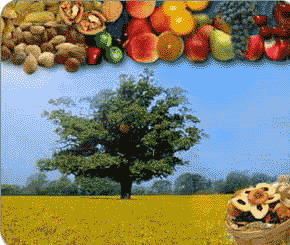אילנות

More than just beautiful traditions, Tu B’Shvat holds a deep spiritual significance in Judaism. This ancient celebration isn’t just about planting trees; it’s about renewal, honoring ancestors, and cherishing the connection between humanity and nature. Rooted deeply in Jewish history, Tu B’Shvat is a sacred religious ritual, reflecting the profound respect for nature embedded in holy texts. Illanot is a celebration of nature.
A Sacred Tradition
The celebration of Ilanot, known as Tu B’Shvat, stands as one of the most beautiful traditions among the Jewish people. This event, far beyond mere cultural expression, emerges as a sacred religious ritual, holding a special place in Jewish life. The holy texts contain numerous verses and stories emphasizing the protection of trees, agriculture, and respect for nature.
Teachings from Sacred Texts
The Book of Leviticus (Vayikra), Chapter 20, writes, “For six years, sow your fields, and for six years, prune your vineyards and gather their crops. But in the seventh year, let the land have a year of rest.”
Likewise, the Book of Deuteronomy (Ha’Devarim), Chapter 20, states, “When you lay siege to a city for a long time, fighting against it to capture it, do not destroy its trees by putting an ax to them, because you can eat their fruit. Do not cut them down.”
And the Book of Leviticus, Kedoshim, Chapter 19, tells us, “When you enter the land and plant any kind of fruit tree, regard its fruit as forbidden for three years. You must not eat it. In the fourth year, all its fruit will be holy, an offering of praise to the Lord. But in the fifth year, you may eat its fruit.”
These passages clearly show that God values nature alongside humanity. In many ways, humans are likened to trees. Ilanot is a reminder to protect nature and preserve divine blessings. In Hebrew, the word “Ilan” means tree, and “Ilanot” signifies the awakening and rebirth of trees from their winter slumber, representing a new beginning and the destiny of trees.
The Wisdom of Rabbi Yochanan
Rabbi Yochanan, a Jewish scholar, emphasized the importance of trees and planting, “If you have a sapling in your hand that you want to plant and someone tells you that the Messiah (the savior) has arrived, first plant the sapling and then go to greet the Messiah.”
Worldwide Recognition of Nature
In the present era, the importance of trees and planting for nature, cleanliness, and environmental beauty has become a universal truth. Nations across the globe dedicate a week each year to honor this cause, celebrating it with festivals and rituals, much like Ilanot. They plant saplings, beautifying their surroundings, and renewing their bond with nature.
The Celebration
Time of the Second Temple
During the epoch of the Second Temple (Beit HaMikdash), a custom arose on Ilanot to plant a tree for newborn children. As these children grew and reached the age of marriage, branches from these trees were used to adorn the wedding canopy (chuppah). Jewish scholars have long believed that Ilanot, which symbolizes the New Year of Trees, represents the renewal of plant life.
Remembering the dead
From ancient times, Jewish scholars have believed that Ilanot, which commemorates the New Year of the trees and fruits, also signifies the renewal of plant life and the sprouting of trees. Additonally, they taught that some spirits dwell in trees and advised the relatives of the deceased to perform the Ilanot ceremony beside a fruit-bearing tree.
The celebration
Every year, on the 15th of Shevat, the Ilanot celebration includes reciting special brachot for trees and plants and enjoying agricultural products, especially the seven species: wheat, barley, grapes, figs, pomegranates, olives, and dates. These fruits are revered in the sacred texts (Deuteronomy, Chapter 8) as heavenly fruits, symbolizing the sanctity of the Holy Land, and eternal faith and hope in the Divine. Through these blessings, we pray for abundant agricultural produce in the coming year, making Ilanot a ceremony of blessing for all tree and land products.


 فارسی
فارسی